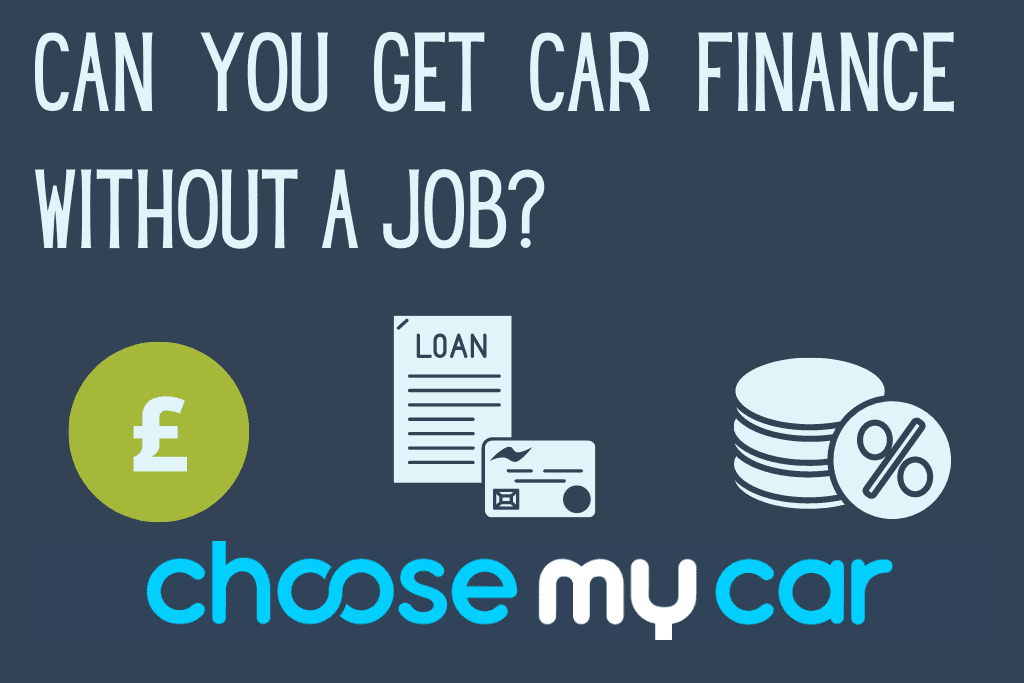Table of Contents Show
Financing a car often feels like an uphill battle, especially when you’re unemployed. Most traditional lenders rely on proof of employment to assess whether you can repay the loan. But what happens when you don’t have a conventional job? Does that mean car ownership is entirely out of reach? Not necessarily.
While it may be more challenging, there are alternative methods and creative solutions that can help you secure a car loan without a job. This guide dives into the intricacies of financing a car without steady employment, providing practical advice to help you navigate this unique financial situation.
Understanding Car Financing
Car financing involves borrowing money from a lender to purchase a vehicle. Instead of paying the full price upfront, you make monthly payments over a set period, which include the loan amount plus interest.
Lenders typically assess your ability to repay based on several factors:
- Employment and income stability
- Credit score and history
- Existing debts and liabilities
- Down payment amount
For most borrowers, a job provides a reliable income stream, which assures lenders of their ability to make timely payments.
The Role of Income in Financing
Income verification is a cornerstone of car financing. Lenders prefer to see consistent earnings as it reduces the risk of default. Without a job, lenders may hesitate to offer a loan, fearing that you’ll struggle to make payments. However, employment isn’t the only way to demonstrate financial reliability.
Can You Finance a Car Without a Job?
Yes, you can finance a car without a job, but it requires a more strategic approach. Lenders need to be assured of your ability to repay the loan, and there are alternative ways to provide that assurance. From proving other sources of income to using assets as collateral, you still have options.
Using Non-Traditional Income Sources
If you don’t have a traditional job, showing alternative income sources can work in your favor. Examples include:
- Freelance or gig work: income from platforms like Upwork, Fiverr, or Uber.
- Passive income: rental properties, dividends, or royalties.
- Government benefits: disability payments, Social Security, or unemployment benefits.
- Alimony or child support: consistent court-ordered payments.
These income streams demonstrate financial stability, even without employment.
Relying on Savings or Assets
Savings and assets can strengthen your case. By showcasing a substantial savings account or valuable assets, you reassure lenders of your ability to handle payments. Consider:
- Submitting bank statements to prove liquidity.
- Using property, vehicles, or investments as collateral for secured loans.
The Importance of a Cosigner
A cosigner can be a game-changer for unemployed applicants. A cosigner with a stable income and good credit agrees to take responsibility for your loan if you default. This reduces the lender’s risk and improves your chances of approval.
Benefits of a cosigner:
- Lower interest rates
- Higher loan amounts
- Easier approval process
However, ensure your cosigner understands the risks involved, as their credit can be affected if you fail to make payments.
Alternative Financing Options
Traditional banks may not always approve your application, but other financing methods are available:
- Buy-here-pay-here dealerships: These dealerships finance loans directly, often without requiring employment proof. However, interest rates can be high.
- Credit unions: They tend to have more flexible lending criteria and may consider alternative income sources.
- Personal loans: Peer-to-peer platforms or online lenders may offer car loans with less stringent requirements.
Government and Assistance Programs
Certain programs assist individuals facing financial hardships in purchasing vehicles. Some examples include:
- Low-income car loans offered by local nonprofits or charities.
- State-sponsored programs for essential workers or those in job training programs.
- Interest-free loans from religious or community organizations.
How Credit Scores Impact Financing
Your credit score plays a crucial role in determining loan eligibility, especially when you’re unemployed. A high credit score can offset concerns about employment status by showcasing responsible financial behavior. If your credit score needs improvement, consider:
- Paying off small debts.
- Disputing inaccuracies in your credit report.
- Keeping credit utilization below 30%.
Building a Strong Loan Application
A compelling loan application can make all the difference. Here’s how to strengthen your case:
- Include proof of all income sources, even unconventional ones.
- Provide documentation of savings or assets.
- Offer a larger down payment to reduce the loan amount.
Proof of Future Employment
If you’ve secured a job but haven’t started yet, providing a letter of intent or employment contract can reassure lenders of your upcoming income. This can significantly improve your chances of approval.
The Role of Down Payments
A larger down payment reduces the lender’s risk, making them more likely to approve your loan. Aim to save at least 20% of the car’s value as a down payment to demonstrate financial commitment.
Financing a Used Car vs. a New Car
Used cars are often more affordable and have lower monthly payments, making them a practical choice for unemployed buyers. However, ensure the vehicle is reliable and won’t lead to costly repairs down the line.
Leasing vs. Buying Without a Job
Leasing might seem appealing due to lower monthly payments, but it comes with restrictions and penalties for early termination. Buying offers more flexibility and ownership but requires a larger financial commitment upfront.
The Risks of Financing Without a Job
While it’s possible to finance a car without employment, it comes with risks:
- Higher interest rates due to perceived risk.
- Potential for repossession if payments are missed.
- Strain on savings or credit score if finances are mismanaged.
Balancing Your Budget
Before committing to a car loan, create a detailed budget. Factor in:
- Monthly payments
- Insurance costs
- Fuel and maintenance expenses
This ensures you can sustain car ownership without jeopardizing your financial stability.
Legal Implications of Misrepresentation
Honesty is critical when applying for a car loan. Misrepresenting your financial situation can lead to legal consequences, including loan denial or fraud charges.
Exploring Peer-to-Peer Lending
Peer-to-peer lending platforms, such as LendingClub or Upstart, connect borrowers with individual investors. These platforms often have flexible criteria and may overlook traditional employment requirements.
Community and Local Resources
Community organizations and local charities sometimes provide interest-free loans or grants for essential purchases like vehicles. Check with local agencies for assistance programs.
Short-Term Car Rentals as a Solution
If financing a car feels overwhelming, short-term rentals or subscription services like Zipcar can be a viable alternative. They offer flexibility without the long-term financial commitment of a car loan.
Planning for Employment
Securing a stable income is the best long-term solution for car financing. Consider job training programs, part-time gigs, or freelancing to generate consistent earnings.
Rebuilding Financial Stability
Once you’ve secured a car loan, focus on rebuilding financial stability.
- Create an emergency fund.
- Track expenses to avoid overspending.
- Improve your credit score through timely payments.
Real-Life Success Stories
Many individuals have successfully financed cars without traditional jobs by leveraging creative solutions like cosigners or alternative income. Their stories underscore the importance of persistence and resourcefulness.
FAQs
Alternative income sources, such as freelancing, savings, or benefits, can demonstrate financial stability.
A cosigner significantly improves your chances but doesn’t guarantee approval. Lenders still assess your overall financial situation.
Leasing can offer lower payments but requires stable finances for long-term commitments.
While there’s no universal minimum, a score above 600 improves your chances, especially without a job.
Yes, some lenders may consider unemployment benefits as valid income.
Aim for at least 20% of the car’s value to strengthen your loan application.
Financing a car without a job is challenging but far from impossible. With careful planning, alternative income sources, and creative strategies, you can secure a vehicle even during periods of unemployment. Focus on building financial stability and explore every available option to make informed decisions. A car is not just a convenience—it can be the key to unlocking new opportunities for growth and success.









